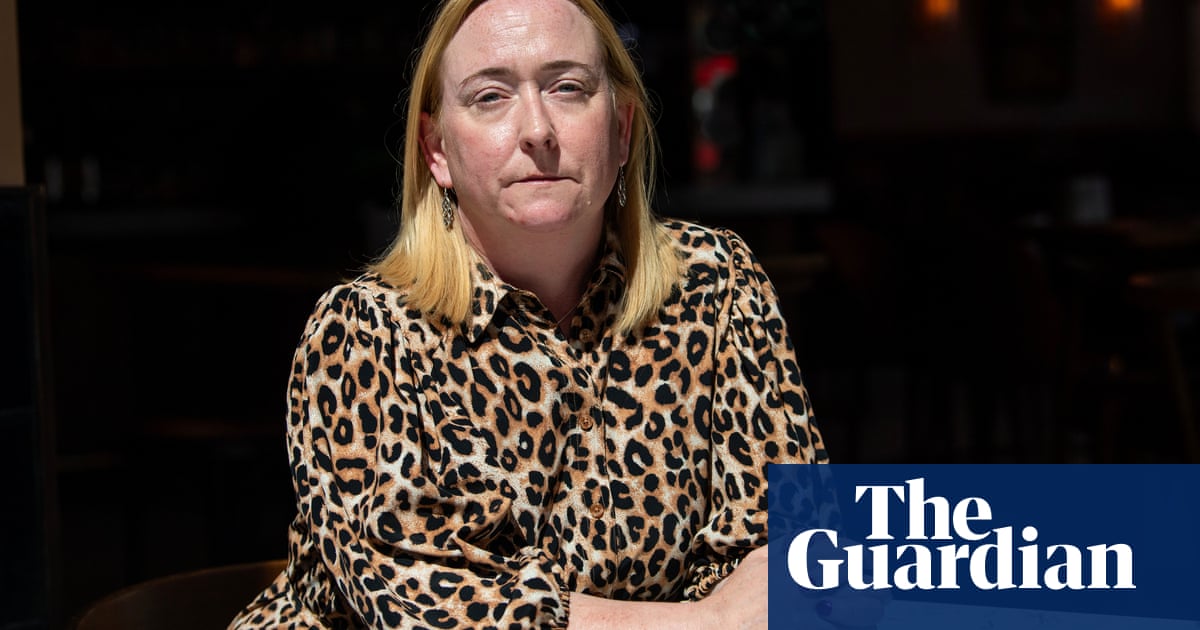In theory, Savannah Downing would love to be a mom. At 24, the Texan actor and content creator is nearing the age at which her mother had kids. Some of her friends are starting families. But having children in the United States is wildly expensive – and so when she saw the news that the Trump administration was considering giving out $5,000 “baby bonuses” to convince women to have kids, Downing was incensed.
“Maybe people will want to have children more often if we weren’t struggling to find jobs, struggling to pay our student loans, struggling to pay for food,” she said. “Five thousand dollars doesn’t even begin to even cover childcare for one month. It just seems really ridiculous.”
Trump officials have made no secret of their desire to make America procreate again. In his very first address as vice-president, JD Vance said at the anti-abortion March for Life: “I want more babies in the United States of America.” Weeks later, a Department of Transportation memo directed the agency to focus on projects that “give preference to communities with marriage and birth rates higher than the national average”. Then, in late April, the New York Times reported that the administration was brainstorming policies to encourage people to get married and have kids, such as giving out those baby bonuses or awarding medals to women who have at least six children.
All of these moves are evidence of the growing power of the pronatalist movement within US politics. This movement, which has won adherents among both traditional “family values” conservatives and tech-bro rightwingers such as Elon Musk, considers the falling US birthrate to be an existential threat to the country’s future and thus holds that the US government should enact policies designed to incentivize people to give birth.
But many of the women who are, in theory, the targets of the pronatalist pitch have just one response: Have babies? In this economy?
After the New York Times report broke, social media exploded with indignation at the proposed policies’ inadequacy. “Go ahead and tell Uncle Sam what he needs to give you to make him daddy Sam,” a woman rasped at the camera in one TikTok with nearly 1m likes. “Universal – ?” she started to say, in a presumable reference to universal healthcare. “No. No. Where did you even hear that?”
“Five thousand? That doesn’t go very far!” one 24-year-old stay-at-home mother of four complained in another TikTok, as her children babbled in the background. “It costs 200, 300 bucks just to buy a car seat for these kids. I just feel like it’s really just insulting. If you want people to have more kids, make housing more affordable. Make food more affordable.”
Although the cost of raising a child in the US varies greatly depending on factors such as geography, income level and family structure, a middle-class family with dual incomes can expect to spend somewhere between $285,000 and $311,000 raising a child born in 2015, a 2022 analysis by the Brookings Institute found. That analysis doesn’t factor in the price of college tuition, which also varies but, as of last year, cost about $11,600 per year at an in-state, public university.
The cost of merely giving birth is more expensive in the US than in almost any other country on the planet. An uncomplicated birth covered by private insurance. which is basically the best-case scenario for US parents, tends to cost about $3,000, according to Abigail Leonard’s new book Four Mothers.
Paige Connell, a 35-year-old working mom of four who regularly posts online about motherhood, had a long list of pro-family policies she would like to see adopted. For example: lowering the cost of childcare, which runs Connell’s family about $70,000 a year. (An April Trump administration memo proposed eliminating Head Start, which helps low-income families obtain childcare, although the administration appears to have recently reversed course.) Or: preserving the Department of Education, as Connell has children in public school and some of them rely on specialized education plans. (Trump has signed an executive order aiming to dismantle the department, in an apparent attempt to get around the fact that only Congress can close federal departments.)
“They want to incentivize people to have children. I don’t think they have a real stake in helping people raise them,” Connell said of the Trump administration. “Many women that I know – women and men – do want more kids. They actually want to have more children. They simply can’t afford it.”
Lyman Stone, a demographer who in 2024 established the pronatalism initiative at the right-leaning Institute for Family Studies, argued in an interview last year that “most of missing babies in our society are first and second births” – that is, that people avoid having a second child or having kids at all. Pronatalism, he said, should focus on helping those people decide otherwise.
“The misconception is this idea that pronatalism is about tradwives and giant families, when it’s really about, on some level, helping the girl boss, like, girl boss in her family life a little bit earlier and harder,” Stone said.
Some Americans may indeed be having fewer children than they would like. Among adults under 50 who say they are unlikely to have children, close to 40% say that they are not doing so due to “concerns about the state of the world” or because they “can’t afford to raise a child”, according to a 2024 Pew survey. A 2025 Harris poll for the Guardian found that the state of the economy has negatively affected 65% of Americans’ plans to have a child.
But to say that pronatalism is about helping the “girl boss” have one or two kids is not quite accurate, given that several prominent pronatalists are deeply interested in producing “giant families”. Malcolm and Simone Collins, who have become the avatars of the tech-right wing of pronatalism, have at least four children and show no signs of slowing down. (The Collinses were behind the medal idea reported by the Times; they called it a “National Medal of Motherhood”.) Musk, perhaps the most famous pronatalist on the planet, reportedly runs something of a harem and has 14 children.
Republicans are also currently exploring policies that would entice more parents to stay at home with their children, the New York Times reported on Monday, such as expanding the child tax credit from $2,000 to $5,000. While these potential policies do not specify which parent would stay at home, four out of five stay-at-home parents are moms.
However, this goal is seemingly at odds with Republicans’ desire to slash the US budget by more than $1.5tn. Indeed, Republicans have proposed dramatically curtailing Medicaid – a proposal that would appear to hinder the pronatalism agenda, because Medicaid pays for more than 40% of all US births.
after newsletter promotion
Pronatalism has long been intertwined with racism, eugenics and authoritarian governments. Nazi Germany and the Stalinist Soviet Union gave out medals to women who had large numbers of children, while in the United States, interest in pronatalism has historically surged in eras, such as the early 20th century, when women and immigrants were trying to participate more in public life. Today, fears about the consequences of the near record low US birth rate are often tied to concerns about the country’s shrinking workforce. Immigration could help alleviate those concerns, but the Trump administration is deeply opposed to it.
All this leads to a fundamental question: do pronatalists want everybody to have children – or just some types of people?
“What I’ve seen online of the pronatalist movement, it does seem very aligned with white supremacy, because it does seem like a lot of the conversation around it is more geared towards white couples having more babies,” said Madison Block, a product marketing manager and writer who lives in New York. She’s also leery of the Trump administration’s focus on autism, which could translate into ableism: “A lot of the conversations around pronatalism, in addition to being borderline white supremacist, I think are also very ableist.”
Now that she’s 28, Block said that many of her friends are starting to get married and consider having babies. But Block is afraid to do so under the current administration. And when she thinks about potentially starting a family, affordable healthcare is non-negotiable.
“I personally wouldn’t want to have kids unless I know for a fact that I am financially stable enough, that I can provide them with an even better childhood than what I have,” Block said. “I think, for a lot of younger millennials and gen Z, a lot of us are not at that point yet.”

Perhaps the ultimate irony of the Trump administration’s pronatalist push is that it is not clear what pronatalist policies, if any, actually induce people into becoming parents.
In past years, Hungary has poured 5% of its national GDP into boosting births, such as through exempting women who have four children or more children from paying taxes. This herculean effort has not worked: as of 2023, the country’s birth rate has hovered at 1.6, well below the replacement rate of 2.1. (For a country to maintain its population, women must have about two children each.) More left-leaning countries, such as those in Scandinavia, have also embarked on extensive government programs to make it easier for women to have kids and maintain careers – yet their birth rates also remain lower than the replacement rate and, in the case of Sweden, even dropped.
It may be the case that, when access to technologies like birth control give people more choices over when and how to have children, they may simply choose to have fewer children. In that 2024 Pew survey, nearly 60% of respondents said that they are unlikely to have kids because they “just don’t want to”.
Downing is not that concerned about pronatalism taking root among the general public. Personally, she doesn’t feel like there’s too much governmental pressure on her to have kids, particularly since she is Black and much of the pronatalism movement seems focused on pushing white women to have babies.
“I feel like a lot of women are fed up. I think that’s why the birth rate is going down,” she said. “Women are realizing that they’re more than just birthing machines.”
But images from The Handmaid’s Tale – the red capes, the white bonnets – haunt her.
“I think $5,000 and a medal trying to coax women into having more kids is a start,” she said, “and I really am worried to see how far they will go to try to force women and have children”.

.png) 8 hours ago
5
8 hours ago
5













































